Cara and Researchers at Risk: Offering a lifeline to academics in danger
For nearly 90 years, Cara (or the Council for At-Risk Academics) has offered a lifeline to researchers and academics working in, or forced to flee from, dangerous global contexts. It works with those currently escaping persecution, those who have been forced into exile, or those who pursue their vital research in a home country ravaged by war or oppression. It offers practical and financial help to academics and their families, while ensuring that academics remain connected to the global research community through its partnerships with leading universities and institutions. Research Outreach was privileged to speak to Stephen Wordsworth, Executive Director of Cara, about their important work, and about the new ‘Researchers at Risk’ scheme for Ukrainian academics.
Could you introduce us to the history and primary objectives of Cara?
Cara was founded in 1933. William Beveridge, who was then the director of the London School of Economics, was in Austria in the spring and heard what was starting to happen in Germany, where the Nazis had just come to power. One of their first edicts was to ban non-Aryans, as they called them, from the public service – that would have been primarily Jews at that time. The world was obviously quite a lot smaller than it is now, and many of those affected were people whom Beveridge knew personally.
So, he came back to the UK, got together with about 30 or more of his colleagues, fellow vice-chancellors, heads of Oxford Colleges, the Heads of the Royal Society and British Academy, and so on, to establish essentially a rescue mission to raise funds to support those who were being pushed out. They sought to help them find places either in the UK, or to support them as they passed through the UK and on to other places where they would be safe, such as the USA, Australia, Canada, and New Zealand.
It was a rescue mission then, and it’s still very much a rescue mission today. Even then they said, in the founding document, that the aim was not to focus solely on Germany but to support those at risk all around the world. The basic principles they came up with then, the ‘relief of suffering’ and the ‘defence of learning and science’ – what we would call ‘academic freedom’ – are still our mission today. So, it’s not just about saving people: it’s also about saving what they carry in their heads and the skills that are important to them for their own countries, if and when they can go back.
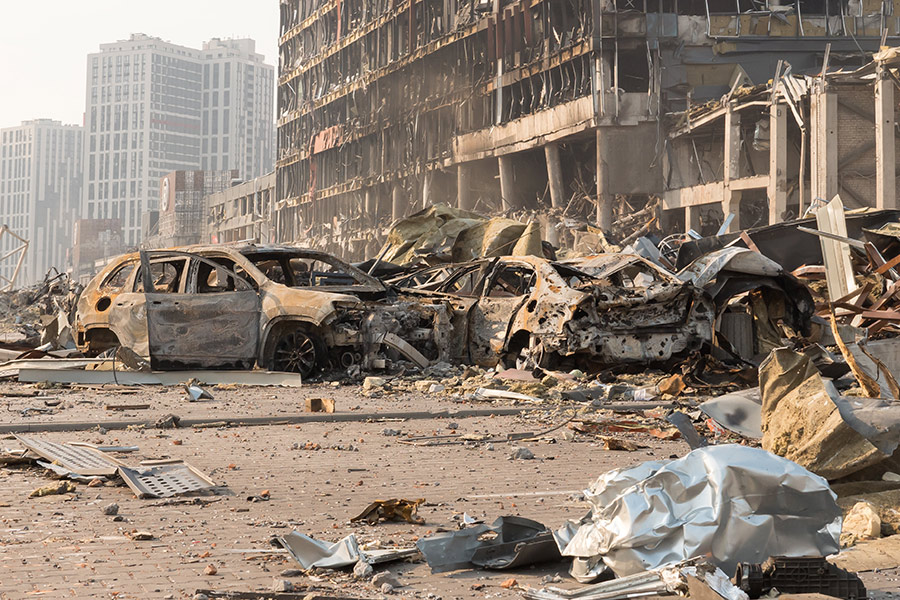
How did you personally become involved with Cara?
I’ve been with Cara now for just over ten years. I previously worked for 33 years with the UK Foreign Office in various countries around the world, including the Soviet Union, but also later in the Balkans – so, seeing some countries where the situation was quite oppressive, others where there had been conflict, and the sort of fears that people felt and needed support to get away from.
When I joined, Cara was quite a different organisation. Cara then actually stood for ‘Council for Assisting Refugee Academics’: that was the focus at the time – those who were already in the UK as refugees who needed help to get back into academia. As refugees, they had access to benefits, and what they needed then was, by our standards now, relatively small scale, essentially help with things like travel and childcare costs.
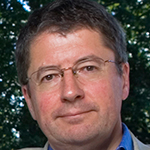
Executive Director of Cara
Who is Cara currently supporting?
With the Iraq War, and then the Syria crisis, we thought that our priority should change, so we could support those who were in immediate danger. People in places like Syria who were under attack, whether by extremists or because of their opposition to the Assad regime, didn’t really have anyone else to help them to get away to a place where they could carry on with their work.
So, that’s what we decided to do, which meant really changing the focus of our Fellowship Programme. We also changed our name to ‘Council for At-Risk Academics’ because the people we were helping didn’t want to be seen as refugees coming to the UK; they were coming on regular visas. And we went to our partner universities (we now have over 130) and said to them: until now, we’ve been asking you for a fee waiver for refugees, but now we also need funding for living costs and accommodation, for people who have no access to benefits. The more you can fund their costs, the better.
Universities’ responses were very positive. Before, the decision to host a refugee was often at the level of the head of a department. They could find a bit of money for a fee waiver, they could find a place to work, and we would provide a few thousand pounds to cover the extras – and that was fine. But when you go to a university and say: we have an early-career academic, hoping to do a PhD, and we’re looking for funding for three or four years, and we not only need you to waive the fees, but also to provide funding for accommodation, living costs, travel costs, and visa costs, and then you add that there is also a family, a partner and maybe three kids, then the total cost is running well into six figures. If you ask a university for that sort of commitment, it has to go up to the executive board and it becomes a decision taken by the senior management. It’s much more visible and becomes a central part of what the university does. And we have had very generous support.
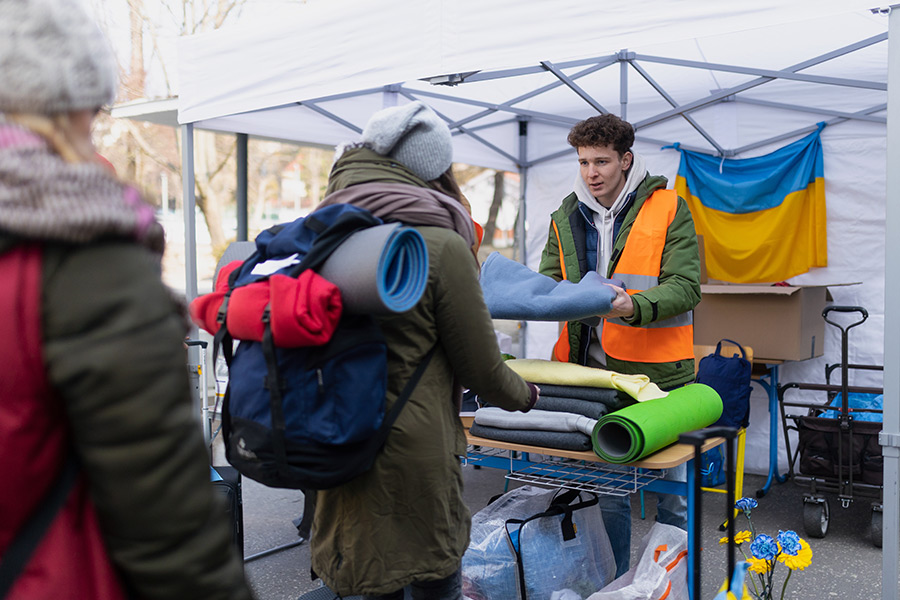
I think we’ve seen that pick up further in the last 12 months, with the fall of Kabul a year ago and now also the situation in Ukraine. Many universities who were already providing places came to us with offers of more places and more funding, because they wanted to respond to what their colleagues in those countries were facing. So we had very strong backing from universities, which was extremely helpful.
How does Cara’s Fellowship Programme work?
Essentially, it starts with people contacting us, from wherever they are. The application process is through our website: there’s a ‘Get Support’ button on the homepage. It’s really for anybody who is an academic, and we define an academic as somebody who is engaged in teaching or research at a university, research institute, or equivalent institution. It’s a fairly broad definition, depending on the country you’re talking about. For example, in a Western system, an academic job tends to be already at a post-doctoral level. But in Syria, for example, it was quite common for people to get their first jobs on the strength of a Master’s or even Bachelor’s degree, as a very early-career academic. If they did well, they were then sponsored by the state to get a PhD, either in Syria or abroad, but that system fell apart when the crisis broke.
It was a rescue mission then, and it’s still very much a rescue mission today.
We now have some very well-qualified people coming out of Ukraine, and we’re also getting people coming from Russia, who want nothing to do with what’s being done in their name or the direction that Russia is going. But essentially, we’re open to anybody from anywhere. In recent years, until last year, most people coming to us were from the Middle East and Syria, Iraq, and Yemen. Now, a lot are coming from Afghanistan, Ukraine, and countries in Asia and Africa.
Can you tell us about the ‘Researchers at Risk’ scheme that Cara is running along with the British Academy?
This came about really quite quickly. Cara is unique in Europe, there’s no other country in Europe that has an organisation quite like us, but in 2015 and 2016, in France and Germany, we saw the launch of two schemes, the Philipp Schwartz Initiative with the Alexander von Humboldt Foundation, and then the next year PAUSE, in France. Both schemes receive funds from governments and from other institutions. Universities are able to apply to them for funding to support exiled academics whom they want to help. The schemes work well, so for the last few years we had been encouraging people here to think about doing something similar. We had a sympathetic hearing, but nothing much happened until suddenly, with the Ukraine crisis, there was a will to do something about it – and quite quickly.
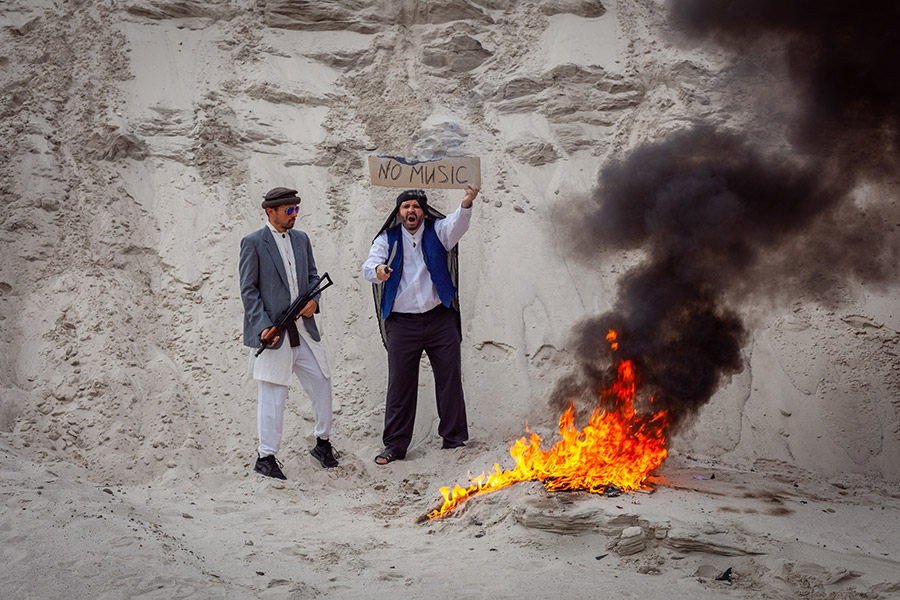
The British Academy took the lead, but we worked with them on some of the basic documents. Quite deliberately, some of the definitions in there – about ‘academic/researcher’ and ‘risk’ – are straight from our own Articles. The individual universities select people they want to put forward for awards, and submit applications. We are involved, as we provide an assessment confirming that the person is indeed at risk. Once the award is made, the British Academy transfers the funds for those individuals to us as restricted donations, and we pay the funds out again to the individuals.
This scheme started off with £3 million from the Government and £0.5m from the Nuffield Foundation, which we thought was going to cover about 40 or so awards; but recently the Government has put in another £9.8 million for awards. It certainly will get us through the rest of this year and is a lot more than we expected. So far, it’s focused entirely on Ukraine. From our point of view, we would like it to go wider than that, but of course we understand the need to respond to what is happening in Ukraine. At the moment, the funding is only for a single year of applications, although the awards are for up to two years. But we are talking to government departments who are working on a longer-term programme based on the same principles, so it may be that we will soon see something like the launch of a UK equivalent of the Philipp Schwartz Initiative on a permanent basis, which would be great because there is no shortage of people needing help.
What are some of Cara’s recent successes?
From the organisation’s perspective, it’s the success we’re having in coping with very different situations evolving very quickly. We had an established model, mainly focused on the Middle East, not by our choice but by where people were coming to us from. Then the situation arose in Afghanistan, and we had 750 applications in three or four months, way more than we would normally get in a full year. A lot of work needed to be done to identify those who were most likely to be able to travel, because there isn’t a British Embassy or Visa Application Centre in Afghanistan, so, nobody can get a UK visa without leaving the country. A lot of people are very nervous about moving around because they fear retribution from the Taliban. Certainly, the Taliban higher education minister has made no bones about his view that academics need to do what they’re told, from now on. People are anxious; some are moving around, but it takes courage.
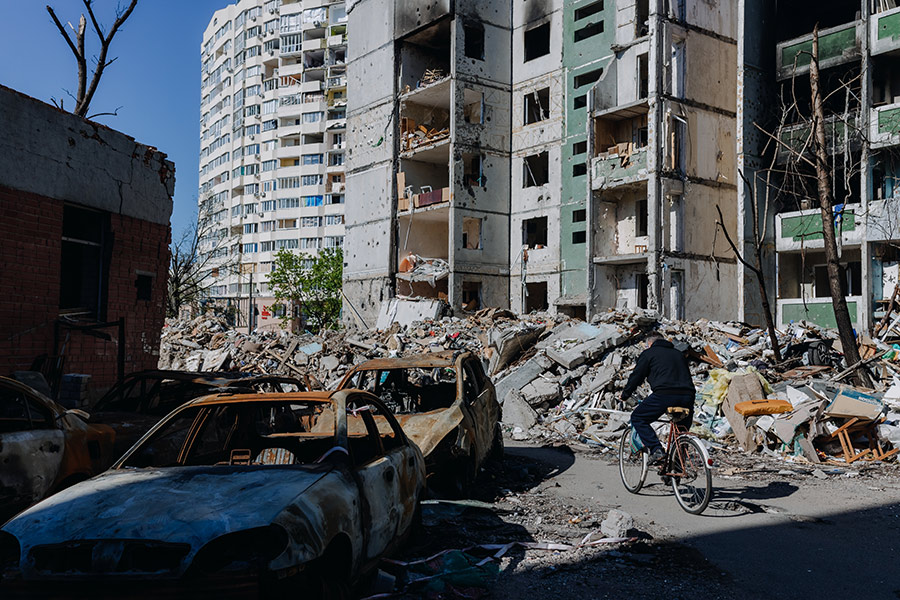
Although we receive many applications from Afghanistan, the number that have so far made it to the UK is quite small – about 20, plus families. Securing the visas and arranging the travel takes time. The situation with Ukraine is quite different, because when that crisis arose, new schemes opened up to help Ukrainians to come here – the ‘Homes for Ukraine’ scheme and the ‘Ukraine Family Scheme’ – which meant that academics who wanted to get away had options that weren’t available to any other nationalities. Some first got in touch with us from wherever they were, maybe in Ukraine still, maybe in Poland, and then the next thing we know they’re arriving in the UK on the sponsorship scheme. So, it’s been a very different situation.
I think we’re happy that we’ve managed to respond effectively. As I say, we’ve had a lot of support from university partners, with funding and offers of places. And they have responded well when we have had to say, ‘We understand about Afghanistan, and the situation in Ukraine, but we are still getting applications from Syria, from Yemen, from Pakistan, Bangladesh, wherever. We mustn’t forget them.’ That’s important – at any given time over 80 at-risk academics are in the ‘active placement’ phase, from a wide range of countries.
Many universities who were already providing places came to us with offers of more places and more funding, because they wanted to respond to what their colleagues were facing in other countries.
In terms of the individuals we help, their achievements are very encouraging. Obviously, it takes time to settle in, some know the system, many don’t, but most do go on to do really well. Some move on to bigger academic jobs, some move into further research first, and we try to keep going and to help them make onward moves later, if they need to. The objective is always, ideally, that they can go home and help rebuild their own countries with their skills and the networks and connections they learnt when they were here.
What can our readers do to help with Cara’s vital work?
Well, like any charity, we need funding. We don’t get any funding directly from the Government, but then we have never asked them for that and we value our independence. Many foundations and trusts have been very generous, and individual donors are also important.

Individuals who can commit to a small, regular donation by direct debit or standing order are particularly helpful, since most of the help we provide is multi-year. For any charitable organisation, the hardest thing is always to raise money to run the charity. People are willing to give money for projects or awards, but when you try to raise money for the running costs, it’s not quite as sexy. A few years ago we launched a campaign asking for £20 a year – a very small amount individually, but it’s already bringing in around £40,000 per year, which makes a real difference. We also get funding from many universities who pay us a voluntary annual subscription. The amounts vary, but in all subscriptions cover, I guess, about three-quarters of our running costs – we just have to raise the other quarter every year.
However, as the scale of the problem becomes bigger, so the staffing levels have to rise. We’re now close to 20 staff in all, paid for by the funds we receive from individuals and foundations. And that includes our team working on another programme, which is our regional Syria Programme, based mainly in Turkey, for Syrian academics in exile in the region around Syria. We’ve been there since 2016, working with 200 exiled Syrian academics and supported by over 400 individual UK-based academics. It’s a great success, and it’s making a real difference to those we are working with.